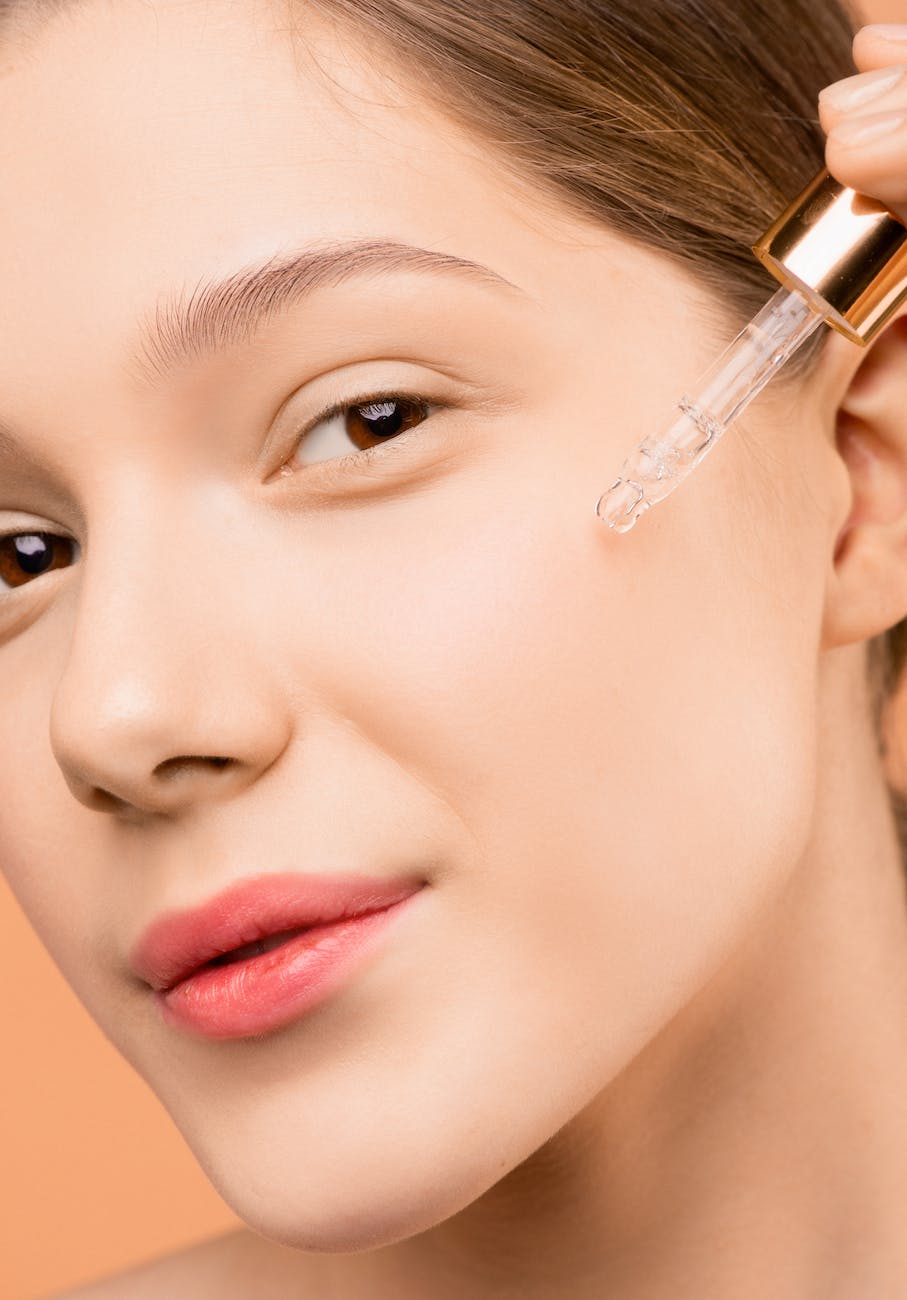
Niacinamide, a form of Vitamin B3, has been a buzzword in the skincare industry in recent years due to its numerous skin benefits. You most likely will find niacinamide in serums (the better way to skin ?) but I have seen some international preparations in creams as well. It is a popular ingredient among skincare product makers who are looking to help their consumers improve their skin’s texture, tone, and appearance.
Here are some of the key benefits of using Niacinamide serum:
- Improves skin barrier function: Niacinamide helps to strengthen the skin barrier, which can improve the skin’s ability to retain moisture and protect against environmental damage. This, in turn, can help to reduce the appearance of fine lines, wrinkles, and dryness.
- Brightens skin tone: Niacinamide has been shown to help improve the skin’s tone by reducing the production of melanin, the pigment that gives skin its color. This makes it an excellent ingredient for those with hyperpigmentation, dark spots, or uneven skin tone.
- Reduces inflammation: Niacinamide is known for its anti-inflammatory properties, making it an ideal ingredient for those with sensitive or irritated skin. It can help to soothe and calm skin, reducing the appearance of redness and irritation.
- Enhances skin hydration: Niacinamide is a highly effective moisturizer, as it helps to increase the skin’s natural production of ceramides. Ceramides are essential lipids that help to maintain the skin’s hydration levels, making skin look and feel plump, soft, and hydrated.
- Antioxidant properties: Niacinamide is a potent antioxidant, which means it helps to protect the skin from free radical damage caused by environmental factors such as UV exposure, pollution, and stress. This, in turn, can help to prevent premature aging and keep skin looking youthful and radiant.
That is all good and well, but you know how I really like to get down to the nitty-gritty of how it all works so let’s talk about the ways niacinamide really works to help skin look its best.
Niacinamide works by affecting various pathways in the skin that contribute to overall skin health. Here are some of the ways in which niacinamide works:
Anti-inflammatory effects:
Inflammation is a key factor in many skin issues, including acne, rosacea, and eczema. Niacinamide has been shown to decrease inflammation in the skin by reducing the levels of pro-inflammatory cytokines, which are molecules that contribute to inflammation. By reducing inflammation, niacinamide can help to soothe irritated skin and prevent further damage.
Collagen synthesis:
Collagen is a key protein that gives skin its structure and elasticity. As we age, collagen production decreases, leading to fine lines, wrinkles, and sagging skin. Niacinamide stimulates collagen synthesis, which can help to counteract this effect and promote more youthful-looking skin. By increasing collagen production, niacinamide can help to improve skin elasticity, reduce the appearance of fine lines and wrinkles, and promote a more youthful complexion.
Sebum regulation:
Sebum is an oily substance produced by the sebaceous glands in the skin. When sebum production is excessive, it can lead to acne and other skin issues. Niacinamide helps to regulate sebum production in the skin, which can help to prevent acne and other skin issues related to excess oil production. By regulating sebum production, niacinamide can help to keep the skin balanced and healthy.
Pigmentation regulation:
Hyperpigmentation is a common skin issue that can be caused by factors such as sun damage, hormonal changes, and inflammation. Niacinamide can inhibit the transfer of melanosomes, which are responsible for skin pigmentation, to skin cells. This can help to reduce hyperpigmentation and promote a more even skin tone. By regulating pigmentation, niacinamide can help to improve the overall appearance of the skin and promote a more youthful, radiant complexion.
Antioxidant effects:
Environmental stressors such as pollution and UV radiation can cause oxidative stress, which can lead to premature aging and other skin issues. Niacinamide has antioxidant properties, which means it can help to protect the skin from these environmental stressors. By neutralizing free radicals, niacinamide can help to prevent premature aging and promote overall skin health.
Barrier function:
The skin’s moisture barrier plays an important role in keeping the skin hydrated and healthy. When the moisture barrier is compromised, it can lead to dryness, irritation, and other skin issues. Niacinamide helps to improve the skin’s moisture barrier, which can help to prevent moisture loss and improve overall skin hydration. By improving the moisture barrier, niacinamide can help to keep the skin soft, supple, and healthy-looking.
Niacinamide works in many ways to benefit the skin. Whether you’re looking to reduce inflammation, improve collagen synthesis, regulate sebum production, regulate pigmentation, provide antioxidant effects, or improve the skin’s moisture barrier, niacinamide is a versatile ingredient that can help to promote overall skin health and vitality.
As you know, if you are a follower of my blog we also must have a discussion about the concentration of ingredients. This is important in determining product effectiveness because the level of concentration of an active ingredient in a product directly affects how well it can perform its intended function.
For example, if a cleaning product contains a low concentration of a particular chemical, it may not be effective in removing tough stains. On the other hand, if the same cleaning product contains a higher concentration of the same chemical, it may be much more effective in removing the stains. But too high of a concentration can have bad side effects on the item being cleaned as well as on the person using it. Yikes! Concentration must be in the perfect zone to be effective. So, similarly, in the case of personal care products like skincare, a higher concentration of certain active ingredients such as niacinamide may lead to better results in terms of reducing the appearance of fine lines, hyperpigmentation, and improving overall skin texture.
Therefore, manufacturers must carefully consider the concentration of active ingredients in their products to ensure they are effective at delivering the desired results while also being safe for use.
The appropriate and clinically effective concentration of niacinamide in skin care products can vary depending on the specific formulation and the intended use of the product. However, research has shown that niacinamide can be effective at concentrations ranging from 2% to 10%.
Studies have shown that a concentration of 5% niacinamide can be effective in improving the appearance of fine lines and wrinkles, reducing hyperpigmentation, and improving skin texture and tone. A higher concentration of 10% niacinamide has been shown to be effective in reducing sebum production and improving acne-prone skin. ( (Reference: Hakozaki, T., Takiwaki, H., Miyamoto, K., Sato, Y., & Arase, S. (2002). Effects of niacinamide on ceramide synthesis and stratum corneum intercellular structure. International Journal of Cosmetic Science, 24(2), 87-94.)
It is important to note that the efficacy of niacinamide in skincare products also depends on the formulation and delivery system. For example, a well-formulated product with 5% niacinamide may be more effective than a poorly formulated product with 10% niacinamide. There will be blogs in the future about bases and formulations, stay tuned for this one!
Niacinamide is generally considered to be a safe and well-tolerated ingredient in skincare products, even for those with sensitive skin. However, as with any skincare product, improper use of niacinamide can lead to side effects. Some of the possible side effects of improper use of niacinamide on the skin may include:
- Irritation: Some people may experience skin irritation, redness, or itching when using niacinamide, especially if it is used in high concentrations or in combination with other potentially irritating ingredients.
- Allergic reactions: Although rare, some people may have an allergic reaction to niacinamide. Signs of an allergic reaction may include rash, hives, itching, and swelling.
- Acne breakouts: Niacinamide is generally considered to be beneficial for acne-prone skin, but in rare cases, it may cause acne breakouts if used in high concentrations or in combination with other ingredients that can clog pores.
- Dryness: Niacinamide can help to improve the skin’s moisture barrier, but using too much of it or using it too frequently can lead to dryness or flakiness.
- Skin discoloration: In rare cases, using niacinamide in high concentrations or in combination with other ingredients may cause skin discoloration or hyperpigmentation.
To avoid these side effects, it is important to use niacinamide products as directed and to start with a lower concentration to allow your skin to acclimate. It is also important to patch-test any new skincare product before using it all over your face to ensure that you do not experience any adverse reactions. If you do experience any irritation or other side effects, discontinue use of the product and consult with a dermatologist.
Overall, if you are looking to incorporate niacinamide into your skincare routine, look for products that contain a concentration of at least 5% niacinamide and are well-formulated to ensure maximum efficacy. In my opinion, using a good niacinamide can really help you start with beautiful skin.





